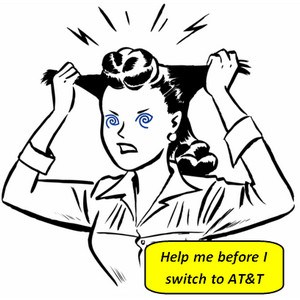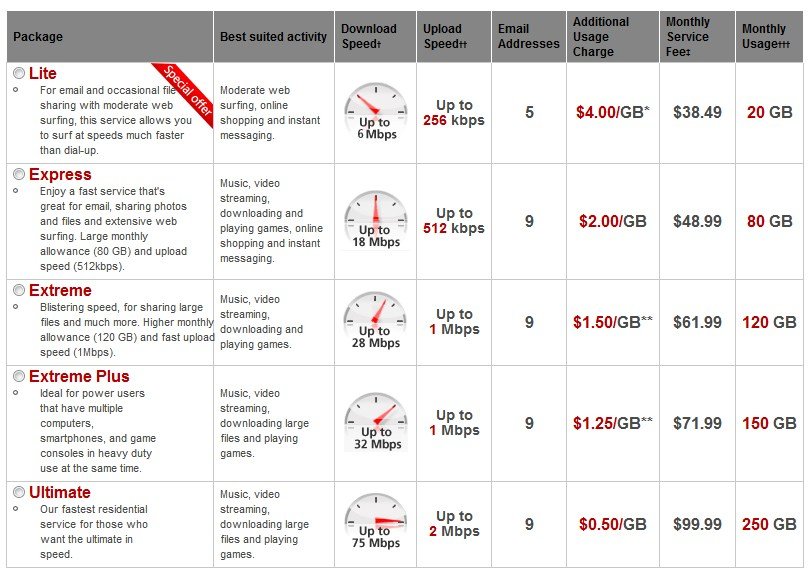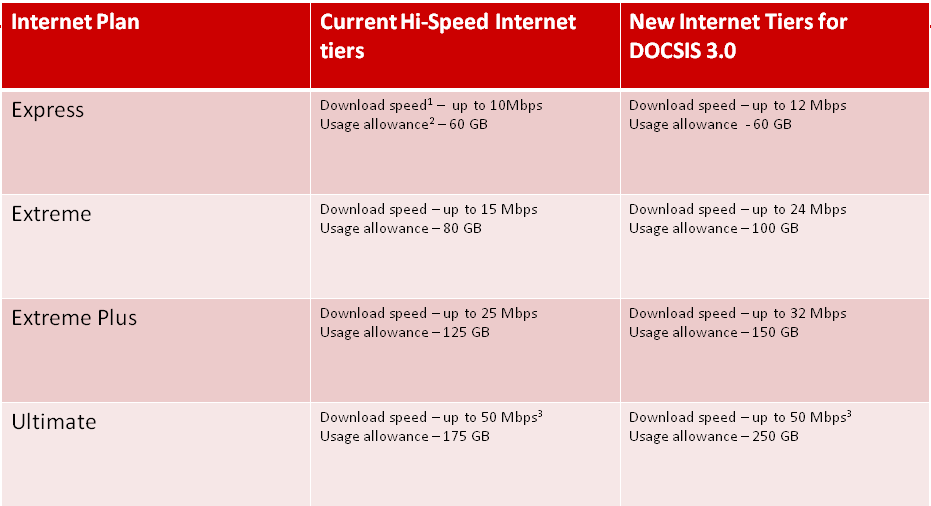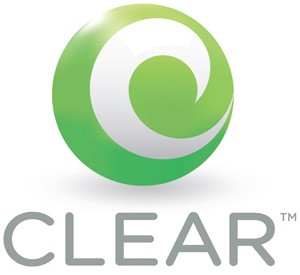
Time Warner Cable has a usage meter up for some customers.
Time Warner Cable has reintroduced usage-limited broadband plans in Austin, Tex., three years after shelving an earlier market test that drew protests from local residents and civic leaders.
Time Warner Cable is offering three tiers of what it calls “Internet Essentials,” each offering different speeds of service, all with a 5GB usage allowance for a $5 monthly discount.
“It’s clear that one-size-fits-all pricing is not working for many consumers, particularly in a challenging economy,” regional vice president of operations in Texas Gordon Harp said. “We believe the choice and flexibility of Essentials will enhance value for lighter users, help us retain existing customers in a competitive marketplace and attract new customers to our superior Internet experience.”
But Stop the Cap! disagrees, noting the three variations of Internet Essentials all offer a tiny discount and come with a ridiculously low usage allowance.
With usage overlimit fees of $1/GB, currently limited to a maximum of $25, customers are playing Russian Roulette with their wallets. Just exceeding the allowance by 5GB a month eliminates any prospects of savings, and going beyond that will actually cost customers more than what they would have paid for unlimited Internet.
The company has added a usage tracker for Texas customers qualified to get the plan. It can be found under the My Services section of Time Warner Cable’s website.

Customers in Texas can choose from Grande Communications, AT&T or Verizon if they want to say goodbye to Time Warner’s endless interest in Internet Overcharging. Image courtesy: Jacobson
Stop the Cap! recommends consumers strongly reject these plans. If customers are looking for a better deal on broadband, it is wiser to call Time Warner and threaten to take your broadband business to the competition. The savings that will result on a retention plan are sure to be better than the Internet Essentials discount, and no one will have to think twice about how they use their broadband account. Customers on an extremely tight budget can also downgrade to a slower speed plan that offers unlimited access, essential in any home with multiple broadband users.
Time Warner Cable does not help their position by significantly distorting the truth about their last experiment trying to limit customer broadband usage. In 2009, the company proposed changing the price for unlimited broadband to an enormous $150 a month. Customers protested in front of the company’s offices in several cities. Despite that, and the intense negative media coverage the company endured, Time Warner still believes its customers are itching to have their broadband usage limited:
Previous Experience with Usage-based Pricing
Time Warner Cable began testing usage-based pricing in 2009. Although many customers were interested in the plan, many others were not and we decided to not proceed with implementation of the plan. Over the past few years, we consulted with our customers and other interested parties to ensure that community needs are being met and in late 2011 we began testing meters which will calculate Internet usage.
We’d be interested to know what customers in the Austin area were consulted about the desire for usage-limited plans. Nobody consulted us either. We can imagine the “other interested parties” are actually Wall Street analysts and fellow industry insiders. We’re confident the overwhelming number of Time Warner Cable customers have no interest in seeing their unlimited use plans changed and company customer service representatives have told us there has been very little interest in the plans to date. For now, the company claims it won’t force people to take usage limited plans, but as we’ve seen in the wireless industry, yesterday’s promises are all too quickly forgotten.
With a usage meter now established, all it takes is an announcement Time Warner is doing away with unlimited broadband (or raising the price of it to the levels the company proposed in 2009), and customers are ripe for a broadband ripoff.
Time Warner Cable says it is “listening” to customers on its TWC Conversations website. We suggest you visit, click the tab marked Essentials Internet Plans, and let Time Warner Cable know you have no interest in these usage-limited plans and are prepared to go to war to keep affordable, unlimited Internet. With your voice, perhaps Time Warner Cable will finally realize that usage caps and consumption billing just don’t work for you or your family.
 Rogers Communications has slightly bumped the monthly usage allowance for its “Lite” Internet plan up by 5GB per month to 20GB. The company also doubled the speed of the entry-level package from 3Mbps to 6Mbps. Upload speed remains at 256kbps.
Rogers Communications has slightly bumped the monthly usage allowance for its “Lite” Internet plan up by 5GB per month to 20GB. The company also doubled the speed of the entry-level package from 3Mbps to 6Mbps. Upload speed remains at 256kbps.

 Subscribe
Subscribe







